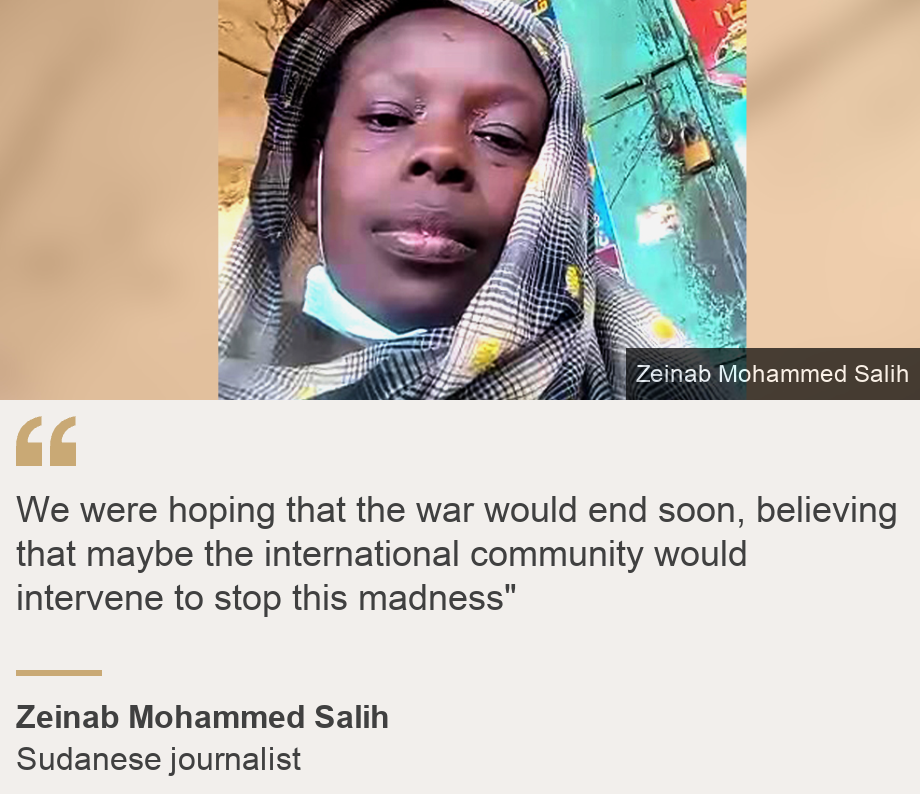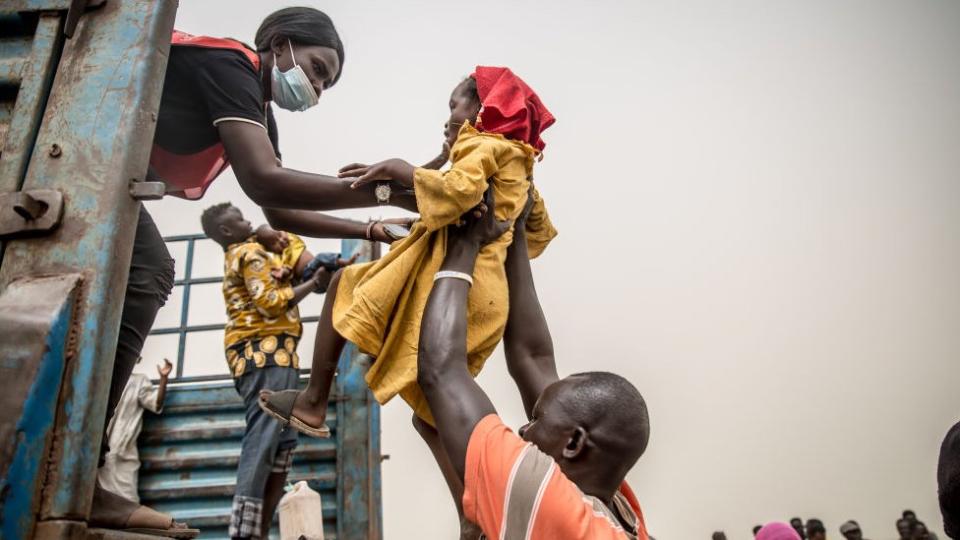I’m not supposed to cry as a journalist when I’m covering stories, but I’ve been crying a lot lately.
Before December, when I went on a reporting trip from my home in the Sudanese city of Omdurman – across the river from the capital, Khartoum – the only people I saw from my window were those carrying the bodies of loved ones. in your arms. shoulders.
They looked for a space on the side of the road to bury the bodies, as going to a proper cemetery was too dangerous.
The dead civilians, many of them killed by bullets and grenades, were the collateral damage of a war that began exactly a year ago, when Sudan’s two top militaries fell out over the country’s political future after seizing power together in a coup. of State in 2021.
I lost many friends and acquaintances.
The bustle of my tight-knit, working-class neighborhood was replaced by silence, sometimes interrupted by the sound of a military plane foreshadowing an airstrike, as the army would target an area controlled by fighters from rival paramilitary forces Rapid Support Forces (Rapid Support Forces). RSF). group.
People fled their homes in fear of being hit.
On April 15th last year, I remember being excited to break the Ramadan fast in the evening with some fellow journalists. I was planning to later reunite with a long-lost childhood friend.
We never met and I haven’t seen him until today. He left the country while I remained.

I started to feel uncomfortable that morning when I started seeing posts on social media about RSF attacks near the city. Then I read about clashes at the international airport. I still thought the violence would stop.
But when a third friend posted that there was fighting at the presidential palace, I knew it was a war.
While many others decided to leave town, my family and I stayed where we were. We hoped the war would end soon, believing that perhaps the international community would intervene to end this madness, but the suffering of the Sudanese people was seemingly ignored.
Residents not only feared the street fighting that took place, but also the armed men – on both sides – who came to loot. They stripped homes, taking everything from cars to spoons.
I returned to Omdurman, but I couldn’t reach my house. I received reports that even their doors and windows were ripped out and taken away.
As the conflict progressed, people began to look thinner and paler, due to scarcity of food and drink, as little aid reached the city. The only small market in my neighborhood was hit by airstrikes as the army tried to expel the RSF.
The remaining hospitals only treated war wounded, those with other conditions were not treated. My diabetic grandmother died because she couldn’t get treatment.
I also became very sick from lack of food.
The only clinic that worked was a 30-minute walk away.
My cousin accompanied me and I had to stop in the shade every two minutes as my energy ran out.
The only doctor on duty prescribed me a medicine that, thanks to friends in Europe, I managed to find.


Although things have been bad in Omdurman and Khartoum, the most affected area is the western region of Darfur, where the conflict has taken on an ethnic dimension.
I came here just over three months ago to report on what was happening, following last year’s mass killings in cities like Geneina, the capital of West Darfur state.
The UN said more than 10,000 people died in the city during two massacres.
People told me about ethnically targeted killings and sexual violence. They remain traumatized months later.
Everyone cries when I ask about their experiences. I also couldn’t hold back the tears and have been struggling to sleep.
My nights were also disturbed on a trip to Fasher, the capital of North Darfur, when airstrikes hit the town at night, shaking everything and waking everyone up.
I’ve been trying to tell our story, but it seems like the world is looking away. International attention is focused on Gaza and before that it was on Ukraine.
I feel sad and angry.
The international community must intervene to put an end to this war, putting pressure on both sides and their regional supporters. Without pressure, I can’t see an end.
It is heartbreaking to see my country fall apart and there is a danger of things getting worse, with ordinary people being armed by both sides.





































